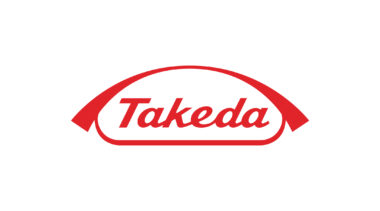This Dementia Action Week, the need for urgent and sustained action by communities and governments at all levels to increase their awareness and understanding of dementia has never been clearer.
Three publications released this week – a discussion paper from Dementia Australia, Neuroscience Research Australia (NeuRA) and the Lancet Regional Health-Western Pacific Journal series and the World Alzheimer’s Report 2024 from Alzheimer’s Disease International – provide compelling evidence for the critical need to urgently address the issues people living with dementia face.
Dementia Australia CEO Professor Tanya Buchanan said the new publications highlight the enormity and impact of dementia in Australia as the chronic disease of the 21st century.
“Dementia has been front and centre this week and it is more apparent than ever that we need mass reach public health dementia awareness and prevention campaigns, improved diagnosis and support and a continued focus on mobilising communities to be more dementia-friendly,” Professor Buchanan said.
In the World Alzheimer’s Report: Global changes in attitudes to dementia 2024, released today ahead of World Alzheimer’s Day on 21 September, results from the world’s largest global survey on attitudes to dementia reveal stigma around the condition is worsening among the general public and even healthcare professionals.
“This inaccurate view of dementia is a major concern, particularly from healthcare professionals, as it can delay diagnosis and access to the right treatment, care, and support,” said ADI CEO Paola Barbarino.
“We need our healthcare professionals to more readily understand that dementia is a medical condition caused by a set of diseases, Alzheimer’s disease being the most prevalent, so that a correct diagnosis can be given, opening the door for a combination of treatments, care, and support that can enable people to live well for longer, to remain at work, at home, and in the community.”
Dementia Australia Advocate Steve Grady was diagnosed with younger onset dementia at the age of 60 years, ten years ago.
“I’ve had people say to me ‘you don’t have dementia’ because I don’t fit their stereotype of someone living with dementia,” Mr Grady said.
“Society has the belief that once you have a dementia diagnosis your life is over.”
Professor Buchanan said these reports demonstrate the importance of a National Dementia Action Plan and why we need a clear vision for the future to move dementia policy, services and support forward in Australia.
“Dementia Australia and people living with dementia, their families and carers have contributed to the development of the National Dementia Action Plan and we eagerly await its release,” she said.
“The evidence is overwhelming. The time to act is now.”
This week is Dementia Action Week (16-22 September). Head to dementia.org.au to find out how you can join us to create a future where all people impacted by dementia are supported and welcomed in their communities, no matter where they live.
-Ends-
Dementia Australia is the source of trusted information, education and services for the estimated more than 421,000 Australians living with dementia, and the more than 1.6 million people involved in their care. We advocate for positive change and support vital research. We are here to support people impacted by dementia, and to enable them to live as well as possible. No matter how you are impacted by dementia or who you are, we are here for you.
For support, please contact the National Dementia Helpline on 1800 100 500. An interpreter service is available. The National Dementia Helpline is funded by the Australian Government. People looking for information can also visit dementia.org.au
Media contacts: David Gear, Media and Communications Advisor, 0427 204 297, [email protected]
When talking or writing about dementia please refer to Dementia-Friendly Language Guidelines.
Note to Editors:
We request, where possible, details for the National Dementia Helpline 1800 100 500 appear alongside news stories about dementia, as these stories often prompt questions or concerns:
If this story has prompted any questions or concerns, please call the National Dementia Helpline 1800 100 500 (24 hours, 7 days a week) or visit dementia.org.au.


